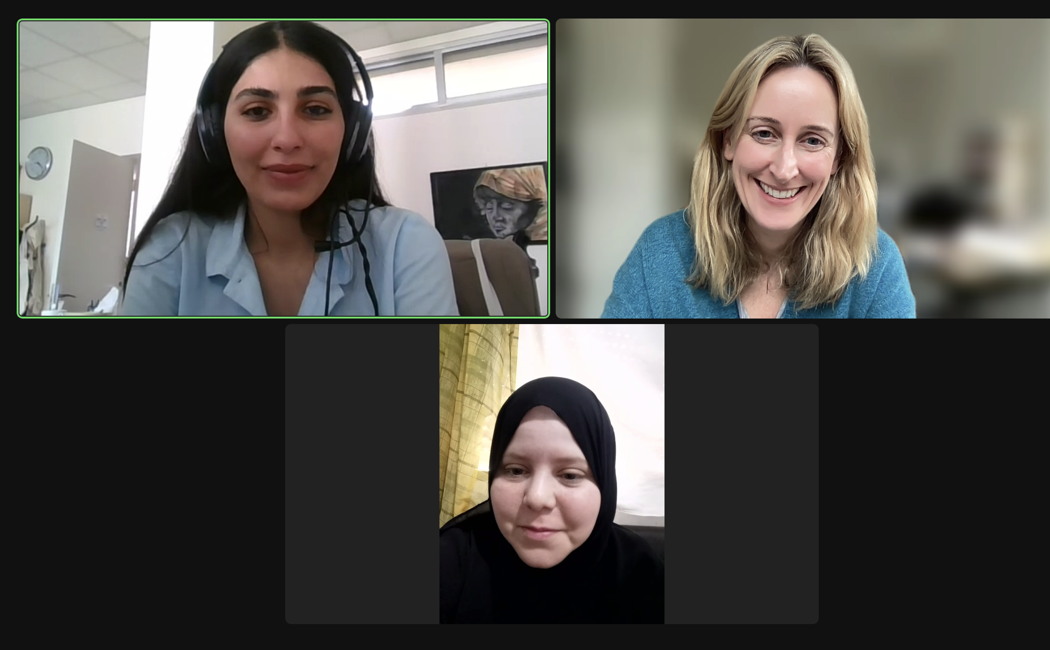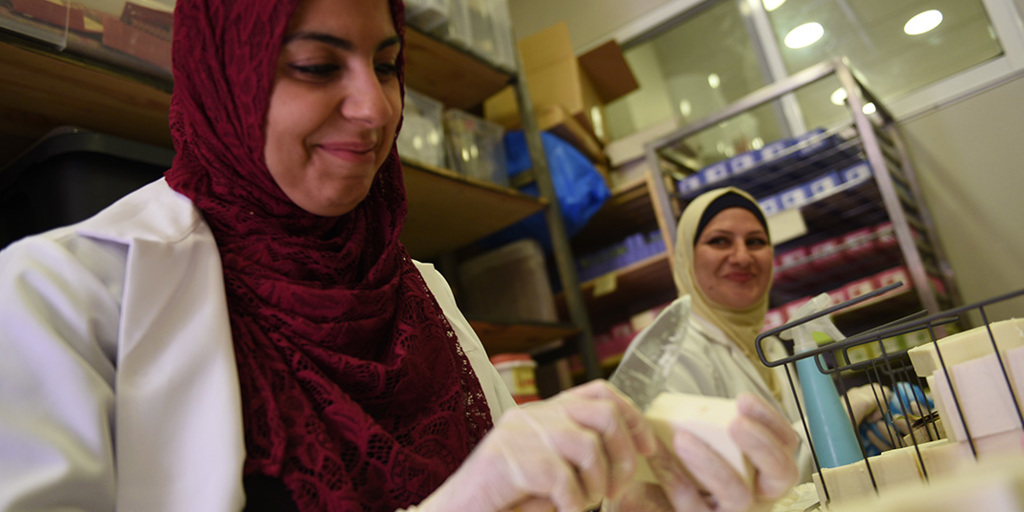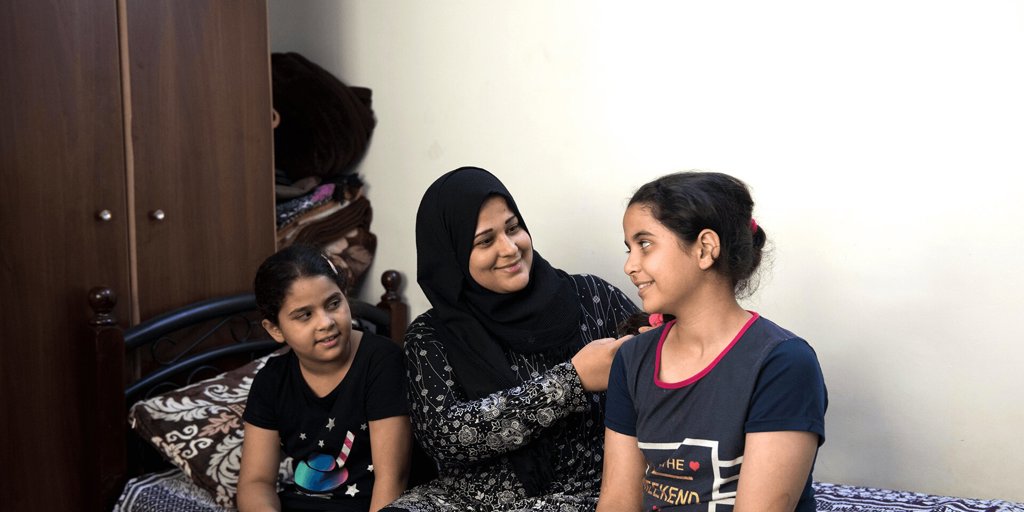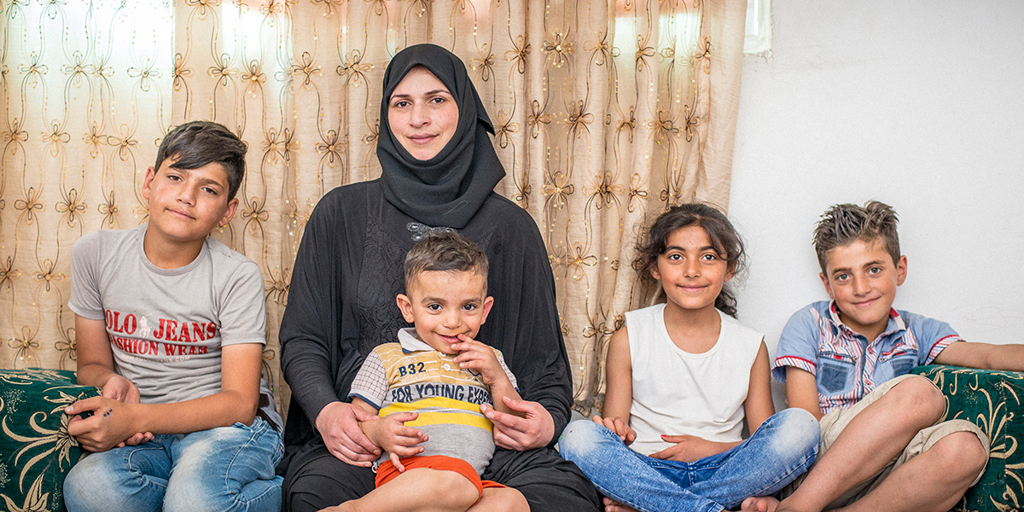Night-time flight
Like many refugees, Nour was forced to flee her home quickly, carrying whatever possessions she could. Her family was being harassed by Syrian government forces, who were looking for her husband, father and other male relatives. Her boys were aged two and four at the time, and she had a three-day-old baby.
“The military men wanted to take the baby as a way of forcing my husband out of hiding,” says Nour. “So that night I decided to leave with my mother, sister and children, and we reached the border at 2am.”
Nour’s husband was discovered hiding in the factory where he worked with his father and brothers. She hasn’t heard from him since, and believes he was murdered in captivity.
“My first year in Jordan was the most difficult,” says Nour. “I didn’t want to even open the door to our apartment as I was afraid of seeing strangers there, like the men who had searched our home. But little by little I was able to take the children to some playgroups as well as engage in some vocational activities like nursing.”
Working outside the home has proved difficult, though, as Muhammed has developed problems with his speech since leaving Syria and attends a school for children with learning difficulties. Sometimes he gets verbally and physically attacked on the way home from school or the mosque, even by younger children, says Nour.
“The older people know what we have been through and treat us with kindness, but the younger ones don’t understand our situation.”
Three years ago, Nour and her boys experienced another heart-breaking loss. Her youngest child, Jawad, died during what should have been a routine operation. He was six years old.
“There was a problem with the anaesthetic and he died during the procedure,” she says. “I used to find it difficult to sleep, as I was thinking constantly about what we’ve been through. I had to seek support and take pills. But now I try to keep busy and there’s no time to think about anything.”
Her greatest hope is to secure resettlement to a third country, such as Sweden or the US. “I have Palestinian Jordanian friends here, as well as fellow Syrians, and my children even speak with Jordanian accents,” says Nour.
“But I want to provide a better life for my children.”
















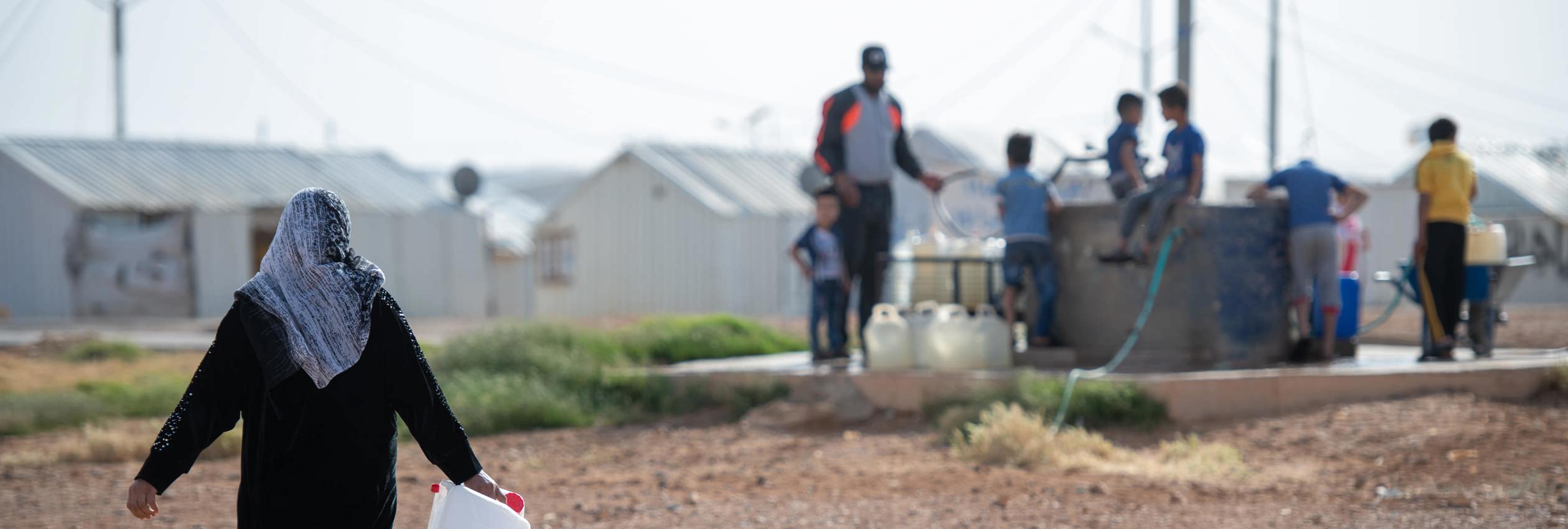
 Jordan
Jordan
